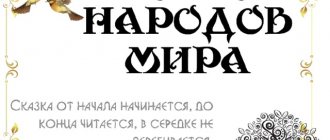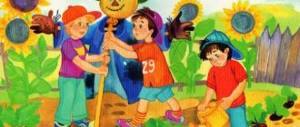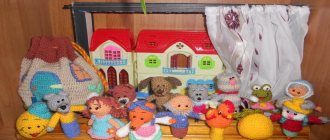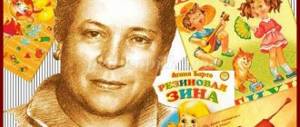Russian speech is filled with polite (magical) words that bring goodness, joy, and hope to humanity. Pronouncing useful phrases makes people more responsive, softer, and more cultured. Let's assume there are no polite expressions in the Russian language. Significant changes will follow immediately. A worthy deed will go unnoticed, a simple request will become an order, ordinary speech will seem impudent, will cause discontent, ruin the mood...
Children and adults taught magic words realize the power of spoken language, reinforcing personal and business success. It is important to be able to speak kind words in a timely and sincere manner.
List of polite words:
Greetings upon meeting and contact
- Hello (you live well, we wish you health)
- Good morning (good afternoon, good evening)
- Hello (greetings, hello, salute, hello)
When getting to know each other
- Hello
- Introduction: first name, last name, patronymic
- Nice to meet you
- Nice to meet you
Words of gratitude
- Thank you
- Thank you
- Grateful
- Touched by the attention
- Our respect
Words when apologizing
- Sorry
- Sorry
- I'm sorry
- Regret
Words of request
- Please
- I beg
- Show kindness, generosity
When saying goodbye
- Good Bye! See you later)
- All the best (all the best)
- All the best
- Good luck
When talking on the phone
- Hello
- Good morning (good: afternoon, evening)
- Hello
- Do you have time to talk?
- Is it convenient to have a conversation now?
- Thank you
- Touched by the attention
- Goodbye (meetings)
List for children
- Hello;
- good morning, good afternoon, good evening;
- Excuse me, please;
- Thank you;
- Good night;
- Goodbye;
- Please;
- allow;
- let me ask, find out, inquire;
- Bon appetit;
- let me help;
- help yourself or take it, please;
- Nice to meet you.
Project “Piggy Bank of Polite Words”
Hello! My name is Glotova Kira.
The theme of our project work: “Polite words.” One day, when the teacher asked the boy to apologize for a bad deed, he replied that he did not know how. Olga Vasilievna was surprised and asked:
“Don’t you know polite words?” Therefore, we decided to find out who else in our class does not know “polite words”. And also find out what they are needed for and whether all children in grade 1 “G” use them. I was also wondering what polite words do guys use most often? We decided to conduct a survey of 1st grade students and prepared the following questions:
1. What are “Polite Words”?
2. What polite words do you know?
3. Do you often say polite words?
4. What are polite words for?
5. Who told you about polite words?
6. What needs to be done so that all children learn about polite words? This is what we heard.
For most guys, polite words are kind and pleasant words. 16 people were able to name two words each. 4 people remained silent, and only 5 people said the word “sorry”. Despite this, most guys still try to say them.
20 out of 25 people understood what polite words are for. 18 people heard these words from their parents.
1 student from the kindergarten teacher.
19 children heard polite words from the teacher. It turns out that if there were no polite words, we would live among angry, impolite people who constantly swear.
Narykova V. reads the poem “Politeness”
What needs to be done so that all people learn about polite words?
We need to talk about polite words. I liked the answer that you need to be kind. I thought that the guys in my class would name a lot of polite words and say them often. It turned out that this was not the case. Therefore, I had a conversation on the topic: “Speaking kind words means being kind.”
We learned and learned new polite words. And so that the guys don’t forget them, we made these books.
-By completing this project, we learned to communicate with each other using beautiful and kind words.
-Learned a lot of polite words.
-We compiled and distributed among classmates a collection of polite words and
Rules of politeness
1.Use polite words:
hello, goodbye, please excuse me,
please, thank you, thank you.
2.Be friendly and polite to all adults and children.
3.Listen to your elders carefully, stand calmly, look your interlocutor in the eyes.
4.
Behave politely everywhere: at school, at home, on the street, in transport.
-The main result of the project was that
we have become kinder and more polite.
-We asked for help
to the teacher, parents, grandparents.
-We think that these are polite words
- these are words that
help
us
to be kind
- We realized that if we do not use polite words, everyone will be offended by each other, because we sometimes offend our friends and family.
-And if we remember polite words and constantly use them, then our class will become the friendliest class in the school, and our relatives will be proud of us.
-We have learned that we must behave politely everywhere: at school, at home, on the street, in transport.
What is hello? - the best of words.
Because hello means be healthy. Remember the rule. You know - repeat. Speak this word to your elders first.
Sorry, please forgive and allow. These are not words, but a key to the soul. In addition to our companion - the multiplication table, there is also a table, a table of respect!
Remember, like the alphabet, like two and two: “Thank you” and “Please” - magic words!
Wherever the immodest are shown away from the gate, the Polite will ask and pass.
Before a polite word, doors open! Let it be repeated more often everywhere.
Remember, like the alphabet, like two and two: “Thank you” and “Please” - magic words!
After all, there are many useful, beautiful and affectionate words in the world. Please, just be polite, After all, this is the basis of the basics.
"Song
about
kindness"
m/f "
The Adventures
of Pig
Funtik
". Words by V. Shulzhik, music by V. Lvovsky.
Is it important to say polite words?
People live surrounded by magic, reflected in natural phenomena, art, and everyday life. The power of magic lies in words spoken constantly in infinite quantities. Surprisingly, with phrases and expressions the interlocutor can hurt, offend or inspire, delight, amuse.
How to ensure that the communicating individual receives positive energy?
People want to hear nice words. Pronouncing polite phrases fills the soul with warmth, light, hope, and peace.
Adults, kids, teenagers have verbal magic
It is important to skillfully use magic, teach children kind, useful phrases, and correctly use magical expressions. A sufficient number of polite phrases are used every day during meetings, acquaintances, requests, farewells, and telephone conversations. You need to remember the “magic” phrases, pronounce them on time and correctly.
Thanks to polite words, people are able to do good, make a pleasant impression when meeting someone, and find a true friend, girlfriend, life partner, or business partner.
People are constantly convinced of the magical power of polite expression, regardless of the purpose. In the morning, when meeting a neighbor, friend, fellow student, a boy, a girl, a pensioner greets them by saying “Hello”, “Hello” and is sure to hear a warm greeting. People are inspired, charged with positive energy, the warmth of words inspires positivity, and a smile appears.
Farewell is necessarily accompanied by the phrases “See you”, “Goodbye”, which confirm the importance of communication. The interlocutors express friendliness and give hope for new meetings.
What to do if you need help?
You should ask, sincerely saying, “Please help,” “Please do me a favor.” The interlocutor to whom kind phrases are addressed will pay attention and will definitely show goodwill.
What words are used when meeting a girl, guy or manager?
It is important to make an impression so that they are noticed, appreciated, want to continue communication, and invited to work. There are a lot of polite expressions when meeting someone - “Allow me to introduce myself,” “Nice to meet you,” etc. The main thing is to say it sincerely, as sincerely as possible. The interlocutor will definitely show interest, appreciate your intelligence, and understand how pleasant it is to communicate.
It's harder to apologize
You need to choose the right polite words and say them with a feeling of great regret. This will help restore previous relationships with your partner, friends, and family. Phrases of apology make people feel better. The interlocutors soften and show goodwill.
The importance of using polite words is undeniable
Magic expressions and phrases help to win over your interlocutor, evoke positive emotions and attention. People who use useful words, phrases, expressions are pleasant, attractive, and interesting when communicating. Polite words lift your spirits and allow you to enjoy peace of mind, regardless of age, gender, status, or employment.
Words of politeness must be spoken constantly; they are the key to successful activities in everyday life!
Riddle poems about politeness for children
To learn these words with children, special riddle poems have been invented:
Having met a bunny, the hedgehog neighbor tells him: “...” (Hello!)
***
And his big-eared neighbor answers: “Hedgehog, …” (Hello!)
***
It’s not too lazy to tell your friends, Smiling... (Good afternoon!)
***
The clumsy dog Kostik stepped on Mouse's tail. They would have quarreled, But he said “...” (Sorry!)
***
If you step on your foot, even by accident, even just a little, immediately say: “Sorry.” Or better – “…” (Sorry!)
***
When we say goodbye to each other, we will say... (Goodbye!)
***
A wagtail from the shore dropped a worm, and for the treat the fish gurgled to her: “…” (Thank you!)
***
If grandma gave you a pie in the morning, take it and say “...” - (Thank you!) Grandma will be happy!
***
Fat cow Lula was eating hay and sneezed. So as not to sneeze again, We will tell her: “…” (Be healthy!)
***
Roma the strict nanny kicked the cuckoos out of the house. To everyone who will pamper, To the house... (Welcome!)
***
If the parrot Gosha gives a good concert in the jungle, everyone will applaud, they won’t forget to say “…”! (Bravo!)
***
Fox Matryona says: “Give me the cheese, crow! The cheese is big, and you are small! I’ll tell everyone that I didn’t!” You, Fox, don’t complain, but say: “…” (Please!)
***
The crocodile did not come out of the swamp for the longest time. Members of the toad council Gave him a prize for this - They awarded him a parrot And shouted: “...” (Congratulations!)
***
If we bake cookies, For a treat to all our friends, We will tell them: “Don’t be shy, Cheers…” (Help yourself!)
***
At two o'clock a fox came to visit the deer. The fawns and the deer told her: “…” (Good afternoon!)
***
At sunset, a moth flew to the light. We are, of course, glad to meet you. Let's say to the guest: "..." (Good evening!)
***
Katya baby Ignatka put him to bed in his crib - He doesn’t want to play anymore, Says: “...” (Good night!)
***
Girl Rita near the path sets the table for the dog and cat. Having arranged the bowls, Rita will tell them “Eat! Enjoy your meal!)
***
Children Dasha and Egorka grate cheese for pizza. The mice from the hole ask: “Give me!” Will you be so kind).
What are the rules of politeness when speaking?
The rules of politeness are the most basic canons of a well-mannered citizen. A polite person is a true friend, a pleasant conversationalist, a welcome guest.
There are many laws of politeness when communicating with a large number of people or two people. The main thing is not to forget to pronounce, correctly and timely use the magic words.
In addition to knowledge, the use of kind phrases and expressions: the need to demonstrate competent behavioral tactics when talking with an interlocutor:
- When a stranger makes a request, you need to put things aside, show maximum respect, and take an active part in the conversation.
- Interrupting the person leading the conversation is bad manners. You need to listen carefully, be patient, and wait until the end of the conversation. Comments, hints, and expressions of opinions during the interlocutor’s story are inappropriate.
- Is the conversation taking place surrounded by people? You should show culture; you cannot react to speech addressed to the person sitting next to you.
- The tactless behavior of a communicating person must be gently stopped and the conversation stopped.
- Is there a discussion going on or insulting people? Try to change the topic of conversation.
- A long conversation is considered bad manners.
- Communication involves showing politeness, attentiveness, and tact. Does your interlocutor need to leave urgently? You need to end the conversation in a timely manner. It is necessary to change the topic of conversation if the people present are not interested in listening.
- Non-standard phrases should be excluded. The meanings of expressions may be unknown or incomprehensible to the interlocutor.
- When communicating with a friend, acquaintance, relative, you cannot criticize, discuss, or slander absent people. Otherwise, an unpleasant environment will be created. You need to say good things about those who are absent, or just remain silent.
- Communicating and waving your arms is a sign of bad taste, showing the individual’s bad manners. You need to clearly and clearly express your own thoughts.
The information provided will help you understand the importance of polite expressions. By pronouncing magic phrases, people make the world around them bright, kind, and rich.
Human qualities Color in psychology and its meaning for a person How to put pressure on the human psyche? Love psychology of love relationships between men and women. How to make a guy chase you? How to make a guy jealous and chase a girl? I will forget you! Just know... Nice words to your beloved man about Love in prose Very beautiful words about Love to your beloved man and person Tender words to your beloved man in prose
Class hour on the topic “Polite words” for grade 2, methodological development (grade 2) on the topic
- What is “politeness”? (children’s answers) - Politeness is good behavior, a respectful attitude. The word “politeness” comes from the obsolete word “vezhestvo”, which means “courtesy”, “learnedness”. - So, let's go!Station 1.
— Guys, our first station is called “Politeness Lesson.” To pass this station we need to solve a problem. - Guys, now I’ll give you pieces of paper with a poem, and you need to read it and underline the polite words with a pencil. We will work in pairs. The elephant makes way for the ant: - Good morning! Let's hurry a little? And the ant: - Oh, thank you, I'm in a hurry. How kind of you! I beg your forgiveness! (children's answers) - Well done! That's right. - So, let's continue our journey.
Station 2.
- Look, what is the name of our next station? - That’s right, “Make a proverb” - I think you’ve heard the proverb “A kind word makes a cat happy.” How do you understand it? (children’s answers) - And now I suggest you connect the parts of the proverbs. Look at the board, the beginning of the proverb is written on the first column, and the end of the proverb is written in the other column. But their ends are tangled, your task is to find the end and finish the proverb correctly. Life is given—speak boldly A kind word—so you will be known About a good deed—for good deeds How you will live—better than a soft pie— Guys, how do you understand the meaning of these proverbs? - Okay, well done. You know the proverbs.
Station 3.
- Guys, look at the name of our next station? - That's right, “Confusion” - Guys, Now I’ll give you tasks. There are words written there, but the letters are mixed up. You need to "unravel" the words. PIBSOSA LAB PROUD BORGARD TYPE OBDOIR ONICH (thank you, thank you, good journey, good night) - Well done! Do you know what the words “thank you” and “thank you” mean? (children’s answers) - The word “Thank you” is a word expressing gratitude for something. According to the rules of etiquette, it is necessary to thank for even a small one, which appeared in the Russian language at the beginning of the 20th century. It comes from the phrase “God save.” When we say “thank you” to another person, we wish him to be saved by God. - The word “Thank you” is formed from two words: good and give. By saying this word, you share a piece of your good and return good for good. The word “thank you” comes from the Russian word “thank you”, that is, “I bring thanks” - Guys, now let’s watch the cartoon (Luntik Ignorant). Let's look carefully, then I'll ask you questions. - Guys, did the caterpillars do the right thing by not apologizing to General Sher? - Did Luntik do the right thing by teaching the caterpillars polite words? - Guys, do you always do this? - In what cases is it advisable to use polite words? words?
Now let's get up from our desks and rest a little. Video
Station 4.
- Guys, we continue our journey through the land of Politeness. - So, our next station is called “If you are polite.” - Who wants to go to the board? I will tell you situations in which you will have to show up. You will communicate with each other using these phones.1. You have offended your friend. And you try to apologize. How will you do this?2. You want to invite your friends to your birthday party. How will you do this?3. Your friends invite you to the cinema, but you can't go with them. How will you respond to their offer?
5 Station "Polite".
— Guys, why are polite words also called “magic”? What “magic” words do you know? Game “Say the Word” - Now I will ask riddles, and you will need to finish the word. 1. I met my neighbor Vitya. The meeting was sad: He came at me like a torpedo from around the corner! But - imagine! – in vain I waited for words from Vitya... (Sorry)2. The grandfather said about his granddaughter: “What a shame! I gave her a teddy bear. I see - she’s very happy! But you can’t be silent like a fish. Well, I would say... (Thank you)3. Flounder swam to the Octopus on Monday, And on Tuesday, as a farewell, she said to Her: “…” (Goodbye!) 4. Katya put little Ignatka to bed in her crib – He doesn’t want to play anymore, Says: “…” (Good night!) 5. Fox Matryona says: “Give me the cheese, crow! The cheese is big, but you are small! I’ll tell everyone that you didn’t give it!” You, Fox, don’t complain, But say: “…” (Please!) 6. Girl Rita near the path The table is set dog and cat. Having arranged the bowls, Rita will tell them “Eat!” Enjoy your..." (appetite!) - Well done! Game “Be careful!” - Now, we will rest a little. I will ask questions, and if you agree, you should answer, “This is me, this is me, these are all my friends!” How many of you, waking up cheerfully, “Good morning!” will he say firmly? (children’s answers) Who has your bag, books and notebooks in order? (children’s answers) Which of you is silent like a fish Instead of a kind “thank you”? (children’s answers) Which one of you, brothers, forgets to wash? (children’s answers) )Which of you on a cramped tram gives up a seat to the elders? (children’s answers)Who wants to be polite, Doesn’t offend the kids? (children’s answers)





